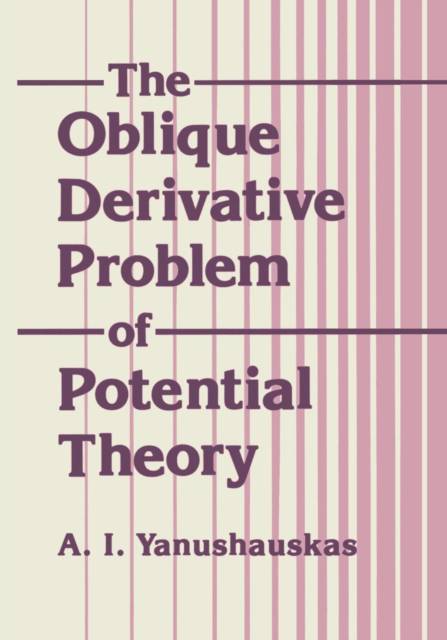
- Retrait gratuit dans votre magasin Club
- 7.000.000 titres dans notre catalogue
- Payer en toute sécurité
- Toujours un magasin près de chez vous
- Retrait gratuit dans votre magasin Club
- 7.000.0000 titres dans notre catalogue
- Payer en toute sécurité
- Toujours un magasin près de chez vous
Description
An important part of the theory of partial differential equations is the theory of boundary problems for elliptic equations and systems of equations. Among such problems those of greatest interest are the so-called non-Fredholm boundary prob- lems, whose investigation reduces, as a rule, to the study of singular integral equa- tions, where the Fredholm alternative is violated for these problems. Thanks to de- velopments in the theory of one-dimensional singular integral equations [28, 29], boundary problems for elliptic equations with two independent variables have been completely studied at the present time [13, 29], which cannot be said about bound- ary problems for elliptic equations with many independent variables. A number of important questions in this area have not yet been solved, since one does not have sufficiently general methods for investigating them. Among the boundary problems of great interest is the oblique derivative problem for harmonic functions, which can be formulated as follows: In a domain D with sufficiently smooth boundary r find a harmonic function u(X) which, on r, satisfies the condition n n au . . .: . . ai (X) ax. = f (X), . . .: . . [ai (X)]2 = 1, i=l t i=l where aI, . . ., an, fare sufficiently smooth functions defined on r. Obviously the left side of the boundary condition is the derivative of the function u(X) in the direction of the vector P(X) with components al (X), . . ., an(X).
Spécifications
Parties prenantes
- Auteur(s) :
- Editeur:
Contenu
- Nombre de pages :
- 260
- Langue:
- Anglais
- Collection :
Caractéristiques
- EAN:
- 9781468416763
- Date de parution :
- 06-04-12
- Format:
- Livre broché
- Format numérique:
- Trade paperback (VS)
- Dimensions :
- 178 mm x 254 mm
- Poids :
- 462 g

Les avis
Nous publions uniquement les avis qui respectent les conditions requises. Consultez nos conditions pour les avis.






